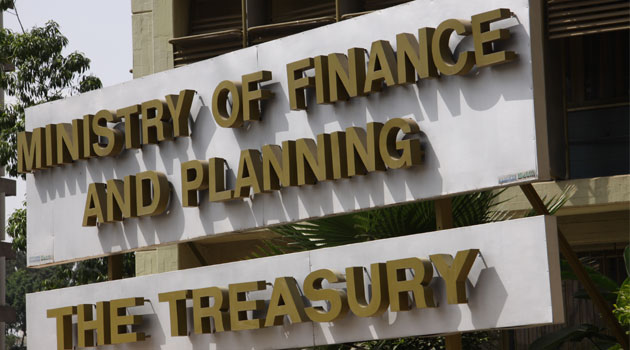
According to the report, constrained growth was due to erratic weather patterns that resulted in depressed agricultural output and insecurity concerns coupled with negative travel advisories that contracted the hotels and restaurants activities/FILE
According to the report, constrained growth was due to erratic weather patterns that resulted in depressed agricultural output and insecurity concerns coupled with negative travel advisories that contracted the hotels and restaurants activities.
Agriculture and forestry grew by 2.7 percent in the first quarter of 2014 compared to a growth of 6.8 percent over a similar period in 2013 while the hotels and restaurants sector dropped by 3.0 percent during the period under review which was an improvement from a decline of 12.8 percent during the same quarter in 2013.
On the other hand, the transport and communication sector expanded by 6.0 percent compared to a growth of 5.6 percent in 2013 while the manufacturing sector recorded the highest growth of 5.0 percent during the period under review compared to a 2.5 percent growth during the first quarter of 2013.
The expansion of the manufacturing sector was mainly driven by a 6.2 percent growth in non-food manufacturing, notably the production of cement production and assembly of motor vehicles.
The communications sub-sector grew by 5.1 percent during the first quarter of 2014, slowing from a growth of 11 percent in the same quarter of 2013. The sector’s growth was mainly on account of continued uptake of new services provided through the mobile telephone networks.
The financial sector slowed down its growth to 8.3 percent in the period under review from 12.1 percent growth same period last year with domestic credit growing by 5.8 percent over the first quarter of 2014 compared to a growth of 2.9 percent in the same quarter of 2013.
Over the same period, credit to the public sector grew by 13 percent compared to 5.9 percent while credit to the private sector increased by 4.7 percent.
“The first quarter of 2014 experienced a relatively stable macroeconomic environment despite interest rates remaining comparatively high. Inflation rose moderately but was nevertheless contained at an average of 6.78 percent during the first quarter of 2014 compared to 4.08 percent in the same quarter of 2013. Over the same period, the Kenya Shilling registered slight fluctuations against the US Dollar, the Euro and the Tanzania Shilling and appreciated strongly against the Japanese Yen and the South Africa Rand while it depreciated significantly against the Sterling Pound,” the report stated.
The NSE-20 Share Index reached a high of 4,948 in March 2014, up from 4,861 during the same month of 2013.
This comes at Treasury Cabinet Secretary Henry Rotich expects the country to grow by 6.1 percent in 2015/2016 but Economic Experts sounding sceptical.
Institute of Certified Public Accountants of Kenya Chairman Benson Okundi says it will take time for the economy to bounce back from the internal shocks such as insecurity resulting from persistent acts of terrorism being experienced in the country.
“Time moves very fast and even if you are able to address the problems that affect us today like insecurity, it will take time before the tourist beams up and before the investor confidence builds up, but also its not realistic to say that we will address the problems that we have today, these problems may persist into some several months in the new financial year that will make it difficult to get the 6.1 percent growth projected,” Okundi explained.
However Okundi commends the Cabinet Secretary for outlining brilliant budget proposals and government spending priorities for the financial year 2014/15 pointing out that the budget is framed against a background of improving global economic prospects.
He urged the government to speed up the measures to curb and reduce wastage in government spending by speeding up the process of the enacting the Public Finance Management Act to provide appropriate mechanisms in the ongoing reforms targeting public expenditure management systems at both levels of government.
Okundi expects the Finance Bill 2014 to comprehensively address taxation issues and policies for the benefit of all sectors in the economy.



































